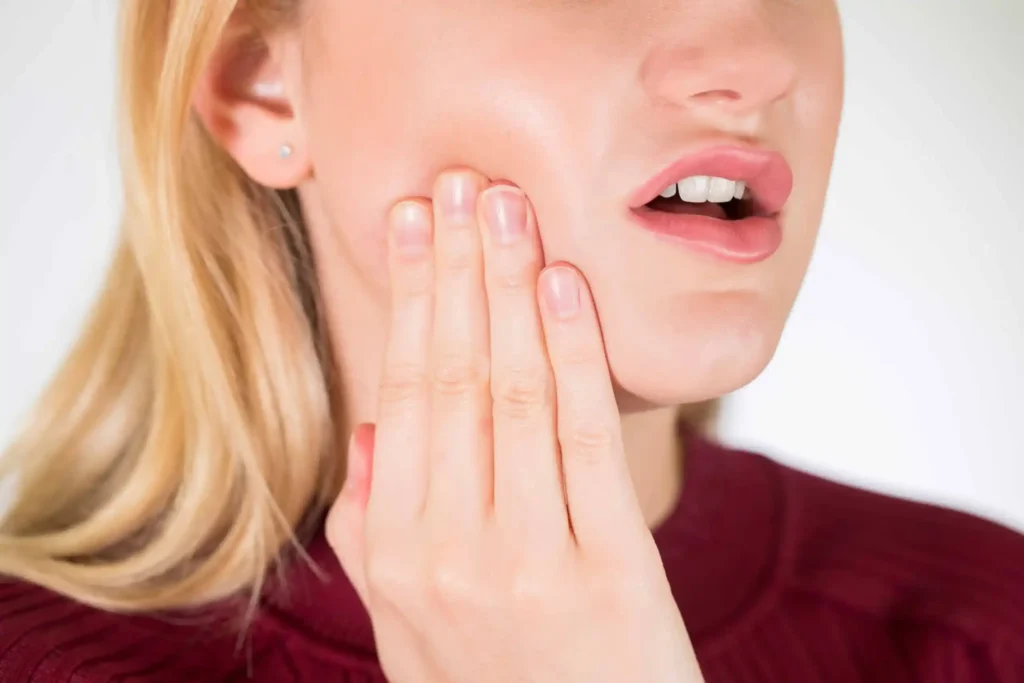Ear infections are uncomfortable, and sometimes they can even cause unexpected pain in your jaw. Many patients come to urgent care with this question: Can an ear infection cause jaw pain? The answer is yes, and the connection is how your nerves and facial structures are connected.
This guide will discuss why jaw pain sometimes occurs with ear infections, the signs and symptoms to monitor, and when to get emergency care for an ear infection.
The Link Between Ear Infections and Jaw Discomfort
The underlying nerves of your jaw area, ear, and jaw are closely interconnected via the temporomandibular joint (TMJ) and muscles that surround it. Due to this correlation, jaw complications can easily extend to the ear. As you experience an ear infection, swelling and pressure along these common nerves can be transmitted to your jaw, causing the pain. That’s why many people wonder, Can jaw pain be caused by an ear infection? The answer is yes.
When the middle ear or inner ear gets inflamed, the pressure may accumulate and spread towards the jaw joint. This can cause jaw pain in the ear that worsens with chewing or speaking and even when the mouth is quiet. So if you’re asking, can an ear infection cause jaw pain?– Yes, definitely, and the pain usually subsides after treatment of the infection.

Signs Your Ear Infection Is Affecting Your Jaw
- Pain When Opening or Closing the Mouth: Can ear infection cause jaw pain? Yes, and this is often one of the first symptoms. Any movement of the jaw—talking, chewing, or yawning, can be painful because the jaw joint is close to the ear. Inflammation in the ear can easily irritate the joint, causing pain with movement.
- Jawline soreness: Your jawline muscles and tissues are likely to be sore or tender to the touch. This tenderness is commonly a result of the pressure of the ear infection moving across common nerves, causing muscle tension and pain in the jaw region.
- Pain around the ear that travels to the jaw/ neck— Can an ear infection cause jaw pain? Yes. Ear infections are not confined to one spot; they can extend down through your jaw as well as down the side of your neck. This is referred pain and occurs because the ear and jaw muscles share the same nerve pathways.
- Pain during chewing—Chewing of food may be difficult due to the increased pain when the jaws are in motion. The consumption of food exerts force on the temporomandibular joint (TMJ), which is already aggravated due to the presence of the ear infection, leading to more acute pain and even muscle tiredness.
- Middle ear infection leading to jaw pain—Can ear infection cause jaw to hurt? Yes, particularly where the middle ear is concerned. This ear region is near the jaw joint; therefore, the swelling and fluid accumulation in this area may directly impact jaw movement and comfort.
Do Ear Infections Cause Headaches
Sometimes, an ear infection that hurts in the jaw can also cause headaches that range from mild to intense. This is because your ear, jaw, and head are all interconnected through a network of nerves. When an ear infection causes swelling and pressure, the irritation may flow along such nerves, carrying your pain to your jaw and even up into your head.
When an ear infection causes swelling and pressure, the irritation can spread along these shared nerves. As a result, ear infection and jaw pain are often accompanied by a heavy, aching feeling in the sides or back of the head. The higher the pressure in the ear, the more you are likely to get jaw pain and a headache simultaneously.
If you’re dealing with ear pain, jaw soreness, and headaches together, don’t ignore the symptoms. Getting checked at an urgent care center like NovaMed Urgent Care can help identify the cause and provide quick relief before the pain worsens.

Do Ear Infections Cause Facial Discomfort?
Yes, they can. An ear infection can result in pressure and swelling, which disturbs the surrounding nerves on the face. It may cause tenderness in the cheeks, jaw, or temples. The ear and jaw are closely related through the temporomandibular joint (TMJ), and therefore, many people also experience ear infection jaw pain. And in case you have been wondering, can an ear infection cause jaw pain? The answer is yes, and it can also cause discomfort in other parts of the face.
Prevention and At-Home Care
While visiting a healthcare provider is the best way to treat an ear infection, there are simple steps you can take at home to ease the discomfort:
- Use warm compresses—applying a warm, damp cloth to the side of your face or ear can help reduce pain and improve blood flow, which may relieve ear infection jaw pain.
- Try gentle jaw stretches—slowly opening and closing your mouth or moving your jaw side to side can help reduce stiffness and ease tension caused by an ear infection that hurts in the jaw.
- Take over-the-counter pain relievers – Medicines like ibuprofen or acetaminophen can help control both the ear and jaw discomfort until you get proper treatment.
- Stay hydrated—drinking plenty of fluids supports your body’s natural healing process and may help reduce inflammation.
However, these self-care methods should never replace a medical check-up. If symptoms last more than a day or two, or if they worsen, seek professional care right away.

When to Seek Urgent Care
Visit the ear infection urgent care when you experience any of the following:
- Sharp or increasing pain—In case the resulting pain is so intense or keeps growing, this may indicate that the infection is spreading. This is particularly crucial when you have symptoms that make it difficult to chew, talk, or sleep.
- Swelling near the jawline—Swelling or puffiness around the ear or the jawline can signal an infection, causing the situation to spread, and it should be addressed by a professional.
- Fever, dizziness, or changes in hearing—A severe fever, light-headedness, or hearing loss is an indication that the infection has become more severe. Such symptoms must not be ignored.
- No relief from home remedies— Warm compresses and rest, and over-the-counter pain medications are not helping; go to the healthcare provider to rule out complications and start with proper treatment.
Conclusion
Ear infections can be more than just ear pain—they can lead to jaw soreness, headaches, and even facial discomfort due to the close connection between the ear, jaw, and facial nerves. Many patients ask, “Can an ear infection cause jaw pain?” The answer is yes. Ignoring these symptoms can allow the infection to worsen and cause lasting complications.
If you’re experiencing persistent jaw pain or related symptoms, it’s important to get checked quickly. Nova Med Urgent Care offers fast, professional treatment to relieve your discomfort and prevent further issues.






